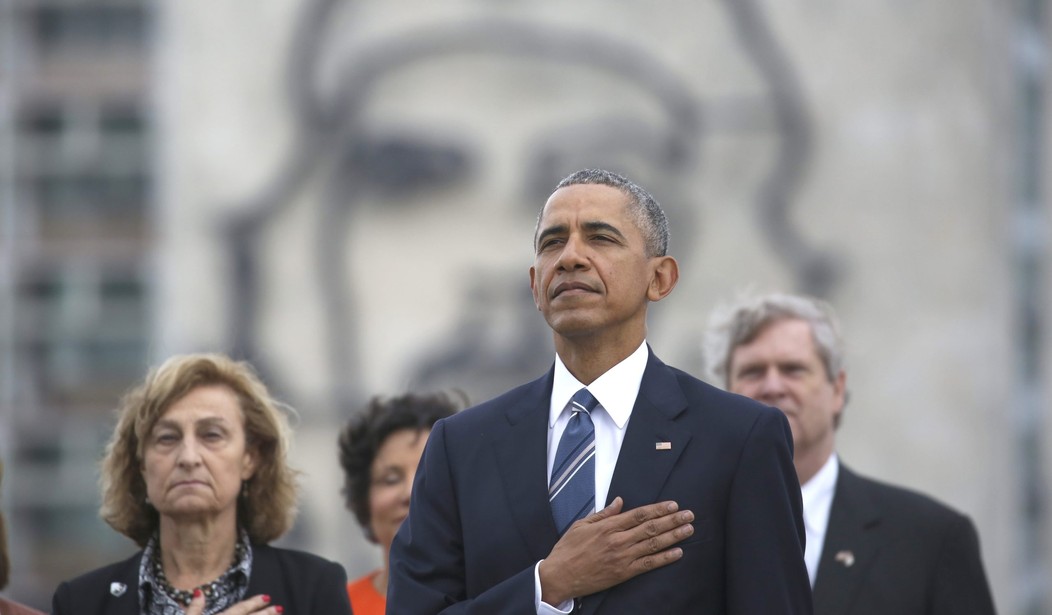As the 2018 election season begins to ramp up, Republicans hold the U.S. House of Representatives, the U.S. Senate, and the presidency. With Neil Gorsuch, the Supreme Court is technically majority conservative. Each of the levers of the federal government seems to be in firm conservative hands. Even so, Republicans across the country are likely to campaign as if they are out of power, and that might just help them pick up seats in November.
Conservatives face a number of huge social and political obstacles. Trump may be president, but former Obama operatives in the “Deep State” are undermining his efforts, and the very mechanisms of government have been transformed by progressive activism.
The Republican Party is far from unified. Efforts to repeal and “replace” Obamacare have failed, and the president recently signed even more debt into law. Trump has cut regulations, but the welfare state needs a serious overhaul, and it seems neither the president nor Congress is serious about entitlement reform.
Companies have ratcheted up their advocacy of liberal causes, and academia, the media, and Hollywood continue to push the narrative further and further to the left. The New York Times is effectively advocating socialism and communism. American colleges are barely recognizable — with George Washington University cutting its American history requirement, for history majors!
As for the culture war, conservatives feel bombarded daily with disrespect.
As John Hawkins, founder of Right Wing News and a PJ Media contributor, explained, the average American conservative cannot find any place to unwind. “He turns on a TV show where he’s insulted, and then he’s like, ‘well, maybe I’ll just unwind and watch an awards show’ — the Oscars or something — where he gets trashed all day long,” Hawkins told National Public Radio (NPR). “He goes to Twitter and he’s got some you know guy calling him in a-hole … this is sort of like a pervasive all-out attack if you’re a conservative. And it’s all the time sort of thing.”
“Politics is downstream from culture. And I do think that it’s true that conservatives have lost in many ways the culture,” Matt Lewis, a conservative columnist for The Daily Beast, told NPR. “There is a sense on the right that is apocalyptic and fearful.”
Indeed, the cultural winds have shifted — hard — against social conservatism.
On Tuesday, the Public Religion Research Institute (PRRI) released the results of a poll taken over the course of 7 months last year. The poll found that a vast majority of Americans support same-sex marriage, support nondiscrimination protections for LGBT people, and oppose conscience protections for small businesses.
In 2013, 52 percent of Americans favored same-sex marriage. Two years after the Supreme Court legalized same-sex marriage in Obergefell v. Hodges, support jumped to 61 percent, and Americans who strongly favor same-sex marriage (30 percent) outnumber those who strongly oppose (14 percent) it by more than a two-to-one margin.
Even churches, often the last bastions of opposition to cultural change, have embraced same-sex marriage. Two-thirds of mainline Protestants (67 percent), white Catholics (66 percent), Orthodox Christians (66 percent), and Hispanic Catholics (65 percent) support this culture shift. Even a majority of Muslims (51 percent) agree. More black Protestants support it (48 percent) than oppose it (43 percent), and almost as many Hispanic Protestants support it (43 percent) as oppose it (45 percent).
Only white evangelical Protestants (58 percent), Mormons (53 percent), and Jehovah’s Witnesses (63 percent) firmly oppose same-sex marriage. Even these numbers represented a ten-percentage-point drop from 2013.
A full 70 percent of Americans said they support laws to protect lesbian, gay, bisexual, and transgender (LGBT) people against discrimination in jobs, public accommodations, and housing. More than one-third of Americans (35 percent) strongly favor such laws.
Worse, a majority of Americans (60 percent) even oppose allowing a small business owner to refuse products or services to gay or lesbian people if providing them would violate his or her religious beliefs. Only a third of Americans (33 percent) support this policy, PRRI found. Only 53 percent of white evangelical Protestants and the same percent of Mormons support this kind of religious freedom.
All that said, PRRI has arguably twisted these religious freedom results. In cases like that of baker Jack Phillips (currently being considered by the Supreme Court), small business owners refuse to serve pro-LGBT events when they gladly serve LGBT people in other contexts. Jack Phillips did not say he would never sell a cake to a gay couple, but he did say he wouldn’t specifically bake a cake for their same-sex “wedding.”
Phillips, and others like him, do not engage in blanket discrimination against LGBT people. They merely exercise their free speech, religious freedom, and free association rights to opt out of endorsing as marriage a union they do not consider marriage.
Polls like this PRRI survey rightly report that most Americans do not support small businesses banning LGBT people from shopping there. They fail to capture the point at issue, however — whether or not a business owner should be able to refuse to endorse speech or an event that goes against their conscience. In another poll, 80 percent of Americans agreed that doctors should be able to opt out of performing transgender surgery, for instance.
While the PRRI survey may not be reliable on the specific religious freedom issues involved in Jack Phillips’s case, widespread support for same-sex marriage has indeed become the norm across the culture. Disney notably included its first openly-gay character in a feature film, 2017’s “Beauty and the Beast.” Other recent films have featured gay and transgender main characters, and some have even faced criticism for not casting transgender actors or for not making characters gay enough.
Large liberal nonprofits like Planned Parenthood and the Southern Poverty Law Center (SPLC) have pushed LGBT issues for children at younger and younger ages. Planned Parenthood curriculum encourages parents to teach transgender identity to their preschoolers. They may be under fire, but they’re fighting the long-term culture war.
The SPLC — which brands mainstream conservative and Christian organizations as hate groups on par with the KKK — pushes LGBT ideas in schools in its “Teaching Tolerance” program. Last year, the SPLC’s “hate group” designations — which resulted in at least one terrorist attack — received wide coverage and acclaim from the mainstream media, and Apple donated $2 million to the group.
To make matters worse, the SPLC has advocated Internet censorship, in an era when YouTube has restricted PragerU videos, Google is reportedly targeting a conservative mailing list for reprisals, and Facebook has banned a German historian for comments about Islam’s impact in European history.
In addition, a Minnesota K-12 school pledged that it would not even notify parents before teaching kindergarteners about transgenderism, and an Ohio court took a 17-year-old girl from her parents’ custody because they would not confirm her transgender identity as a boy.
Many parents have had enough. Last month, parents across the country and in England marched against graphic sex education in schools. But these marches can’t defund Planned Parenthood or weaken the LGBT stranglehold in culture centers like schools, the media, and Hollywood.
In this climate, is it any wonder conservatives feel like a misunderstood and abused minority, rather than members of a movement with the levers of power?
After speaking with John Hawkins and Matt Lewis, NPR’s Tim Mak came to an important realization. “Democrats are doing that by running against Donald Trump,” he began. “Republicans may find that tapping into these feelings about losing power in society is the best way to motivate their base.”
President Trump declared that the “forgotten men and women of our country will be forgotten no longer.” He may be the president, but many of those forgotten men and women still feel forgotten. Their sense of powerlessness may help balance (and even defeat) the Democrat anti-Trump enthusiasm in November.









Join the conversation as a VIP Member